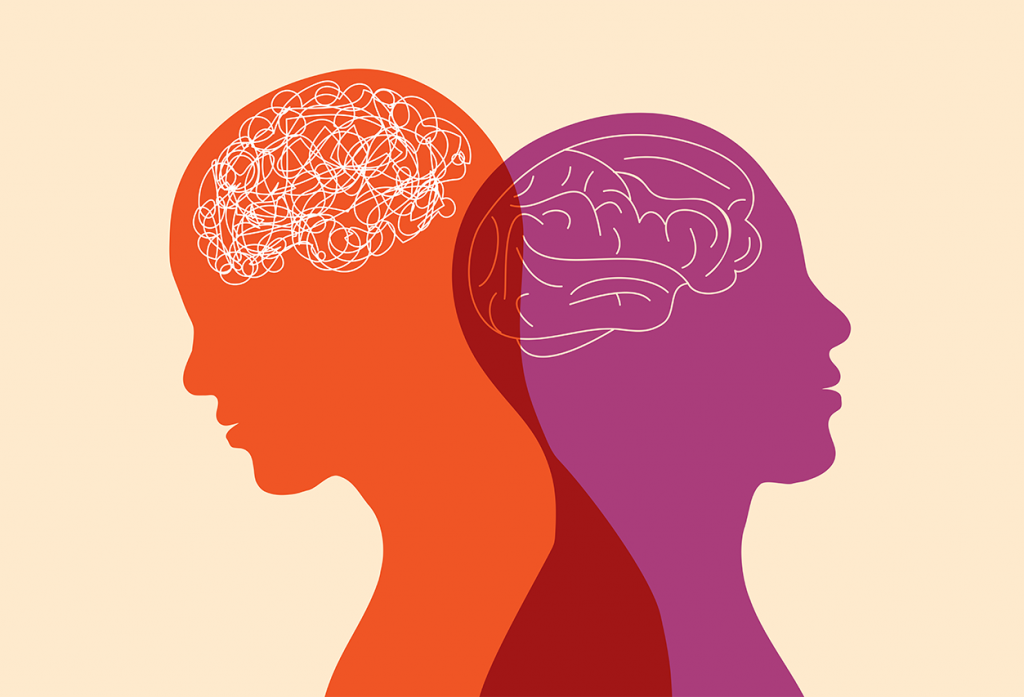Inpatient Mental Wellness Solutions: A Path to Recovery and Stability
Inpatient mental health services play an important duty in attending to acute mental situations, providing a very carefully structured atmosphere that cultivates healing and stability. These solutions not just encompass detailed analyses and individualized treatment strategies yet also supply continual access to restorative treatments and clinical support. The importance of this technique expands beyond immediate relief, recommending a transformative impact on lasting psychological health. However, the complexities of the admission procedure and the significance of aftercare raise essential questions about availability and efficiency in the more comprehensive context of psychological health care. What implications might these factors have for individuals seeking assistance?
Recognizing Inpatient Mental Wellness Solutions
Inpatient mental wellness solutions are vital for offering intensive and organized like individuals experiencing extreme mental distress or mental ailment. These solutions generally entail the admission of individuals to specialized facilities where they obtain day-and-night supervision and assistance from a multidisciplinary team of psychological health and wellness specialists. The main goal of inpatient treatment is to stabilize individuals, ensuring their safety and security and attending to acute signs and symptoms that may posture a danger to themselves or others.
Inpatient programs often consist of a variety of healing interventions, consisting of individual and team therapy, medicine monitoring, and psychoeducation. The structured setting is developed to advertise recovery by using a consistent regimen, minimizing outside stress factors, and helping with the growth of coping techniques.
Admission to inpatient solutions is typically taken into consideration when outpatient treatment alternatives have actually proven not enough or when a person remains in crisis. Facilities may vary in regards to their details focus, with some focusing on certain conditions such as anxiousness, substance, or anxiety use. Through extensive analyses and customized therapy strategies, inpatient psychological wellness solutions intend to provide the necessary support for individuals to regain stability and prepare for a transition to less intensive degrees of care.
Advantages of Inpatient Care
The benefits of inpatient care are significant, specifically for people dealing with acute psychological health and wellness challenges. Inpatient therapy supplies a structured environment that cultivates healing by reducing stressors and disturbances connected with life. This controlled setup enables patients to concentrate entirely on their psychological health, facilitating the needed time for healing.
Moreover, inpatient treatment offers 24/7 accessibility to restorative and medical assistance. This continuous availability makes certain that individuals can receive prompt attention throughout dilemmas, which is vital for those experiencing serious episodes - Inpatient Mental Health Program. The collaborative technique among medical team, consisting of registered nurses, psychoanalysts, and therapists, improves the top quality of care and advertises a thorough therapy strategy tailored to private needs
Additionally, the public facet of inpatient care fosters a sense of belonging and assistance amongst people. Group therapy sessions and shared experiences can relieve feelings of isolation, urging individuals to participate in their recovery actively.
Moreover, inpatient programs usually provide patients with vital coping methods and abilities that can be challenging to establish in outpatient setups. By resolving underlying concerns within an encouraging structure, inpatient treatment can bring about extra secure end results and a smoother change back to day-to-day life, inevitably leading the course to sustained healing.
Treatment Methods and Therapies
Different treatment techniques and therapies are more utilized in inpatient psychological health and wellness solutions to resolve the distinct needs of each individual. These approaches are created to promote recovery and promote psychological security in an organized environment.

Cognitive Behavior Modification (CBT) is a widely used technique, assisting individuals in recognizing and modifying unfavorable idea patterns that add to their psychological reference health problems - Inpatient Mental Health Facility. Dialectical Behavior Modification (DBT) is one more reliable method, especially for those with borderline individuality disorder, concentrating on emotional guideline and social effectiveness
Pharmacotherapy plays a crucial function in therapy, with psychiatric medicines suggested to take care of symptoms of conditions such as depression, schizophrenia, and stress and anxiety. Routine tracking and adjustments make sure the effectiveness of these medicines while decreasing side effects.
Group therapy promotes a sense of neighborhood and assistance amongst individuals, permitting them to share experiences and dealing approaches. In addition, all natural treatments, such as art and songs treatment, promote self-expression and emotional healing.
Ultimately, the combination of these varied healing methods gives an extensive treatment plan tailored to each patient's specific needs, intending to boost their total health and assist in a successful transition back into everyday life.
The Admission Process
Navigating the admission procedure for psychological health solutions is an important primary step toward healing. This procedure normally starts with an assessment performed by a psychological health expert. During this assessment, the person's psychological wellness history, signs and symptoms, and prompt requirements are thoroughly examined. This thorough evaluation helps determine the ideal degree of care and ensures that the patient obtains customized treatment.
Once the analysis is finished, the next step entails talking about the possible treatment alternatives. The individual and the therapy group collaboratively select the very best training course of action, which may consist of inpatient care if the circumstance is regarded serious. This is adhered to by the completion of necessary documentation, including insurance confirmation and permission forms, to make certain that all monetary and legal facets are attended to.
Additionally, family participation may be encouraged throughout this stage to provide support and gather viewpoints on the individual's situation. Ultimately, the admission procedure intends to develop a supportive and risk-free atmosphere for the individual, permitting for a smooth transition into inpatient care. By getting involved and recognizing in this procedure, people can take an essential step toward achieving mental health and wellness stability and healing.

Aftercare and Ongoing Support
After finishing an inpatient mental health and wellness program, individuals often deal with the critical task of transitioning to aftercare and continuous assistance, which are important for sustained recovery. This phase is critical for reinforcing the skills have a peek at this website and dealing devices learned during the inpatient stay, making certain that individuals remain to advance in their psychological wellness journey.
Aftercare usually includes a combination of outpatient therapy sessions, support teams, and medication management. Taking part in routine treatment enables people to deal with ongoing difficulties and develop methods to handle stress factors in their lives. Support system offer a sense of community and shared experience, cultivating link and understanding amongst peers encountering comparable battles.
Additionally, continuous support may include family involvement, where enjoyed ones are enlightened concerning psychological health and wellness concerns and encouraged to take part in the recovery procedure. This all natural strategy develops a robust assistance network, boosting the person's possibilities of long-lasting security.
Eventually, aftercare and continuous support work as a bridge in between inpatient treatment and independent living, empowering people to browse their psychological health obstacles with strength and confidence. Prioritizing these sources is vital for fostering a lasting healing trajectory.
Conclusion

Inpatient psychological health solutions play an important role in resolving acute emotional dilemmas, supplying a very carefully structured atmosphere that cultivates healing and security.Inpatient mental wellness services are necessary for offering extensive and organized care to people experiencing severe mental distress or psychological health problem. Through detailed assessments and tailored therapy plans, inpatient psychological wellness solutions aim to give the necessary assistance for individuals to reclaim stability and prepare for a change to much less intensive levels of treatment.

Comments on “Why Inpatient Mental Health Services Are Crucial for Wellness”